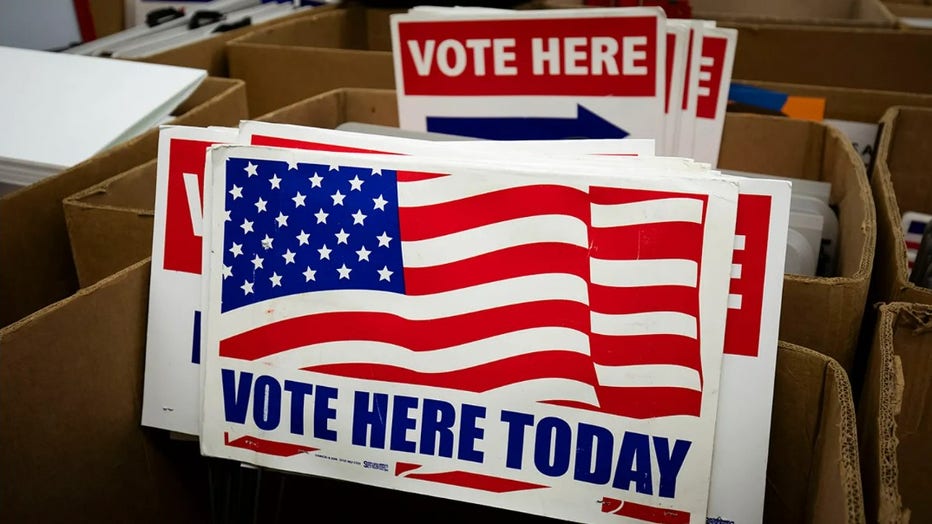Nearly 50% of voters say deepfakes had some influence on election decision: Survey
PANEL: Experts discuss US presidential elections
Grant Reeher at Syracuse University and Dr. Daniel Bennett at John Brown University joined LiveNOW from FOX's Josh Breslow to discuss the latest on the US presidential election.
Political deepfakes are becoming increasingly prevalent as the presidential election approaches, and they are deceiving more people, experts warn.
According to a recent survey by computer security company McAfee, 63% of people said they have seen a political deepfake in the last 60 days. Nearly half of them (48%), said the deepfake had some influence on who they’ll vote for in the upcoming election.

FILE - Voting signs are stocked and ready at the Reo Elections Office on Oct. 3, 2024, in Lansing, Michigan. (Bill Pugliano/Getty Images)
Deepfakes can be images, videos, or audio that is edited or generated using artificial intelligence tools. The issue is that GenAI tools have made it easier and faster to create realistic AI-generated content, according to McAfee's head of threat research Abhishek Karnik.
AI SCAMS ARE PROLIFERATING. A NEW TOOL IS ATTEMPTING TO COMBAT THEM
These deepfakes have become such a common occurrence that more than a quarter of the survey respondents, 27%, have seen at least five deepfakes within the past two months. About 13% have seen 10 or more deepfakes.
"This year, deepfakes are especially concerning, not only because they’re on the rise, but also because people are increasingly unsure of what’s real and what’s fake online," Karnik told FOX Business.
Karnik said more than 8 in 10 Americans encounter content monthly that they can’t immediately verify if it's real or AI-generated.
He noted that this trend is pronounced in battleground states like Michigan, where nearly 71% of people have been exposed to political deepfakes, according to the data. In Pennsylvania, 61% of respondents reported encountering political deepfakes.
Meanwhile, more than half of respondents reported encountering political deepfakes in Nevada, North Carolina and Wisconsin.
In other battleground states, including Arizona and Georgia, nearly half of respondents reported encountering political deepfakes, according to the data.
"In such a polarized election cycle, disinformation can easily exploit existing biases and make their impact even more significant," Karnik said.
Karnik contended that when people begin to doubt the truth of what they are seeing and hearing, "a constant sense of uncertainty takes hold, which makes it easier for false narratives to shape opinions—especially when the content aligns with pre-existing beliefs."
McAfee launched a 2024 Election AI Toolkit to help voters learn the basics of how to spot a deepfake.
Get updates to this story on FOXBusiness.com.

